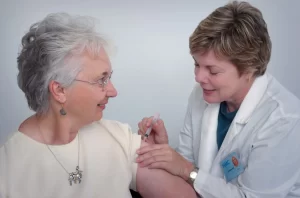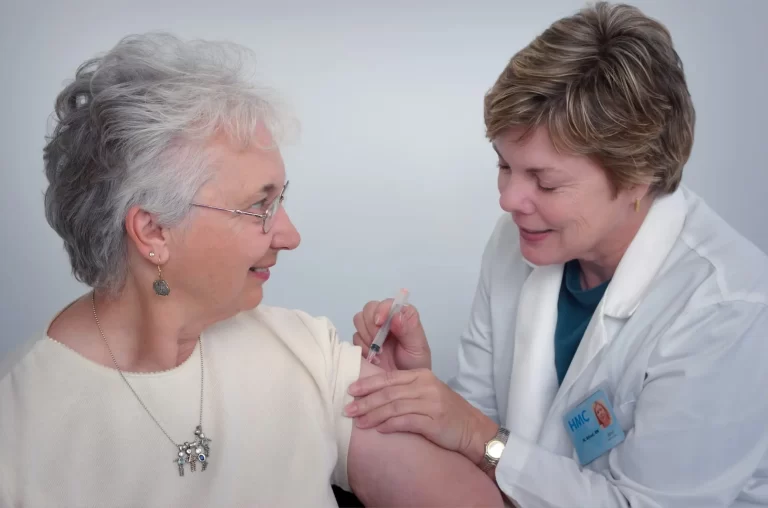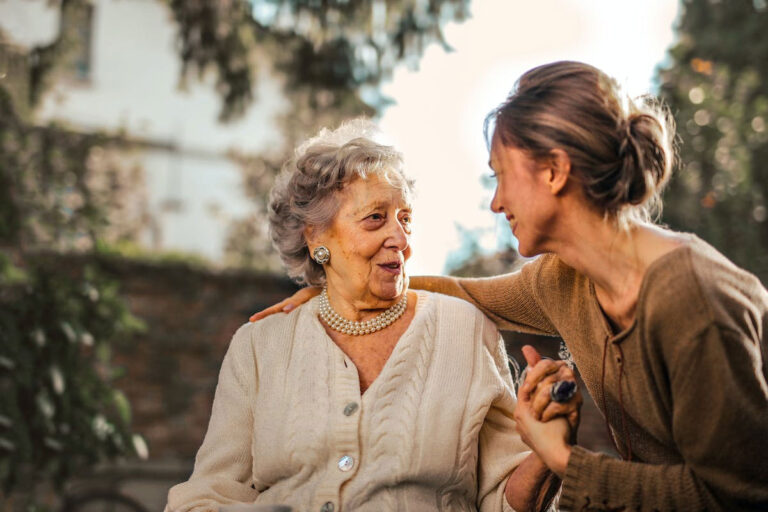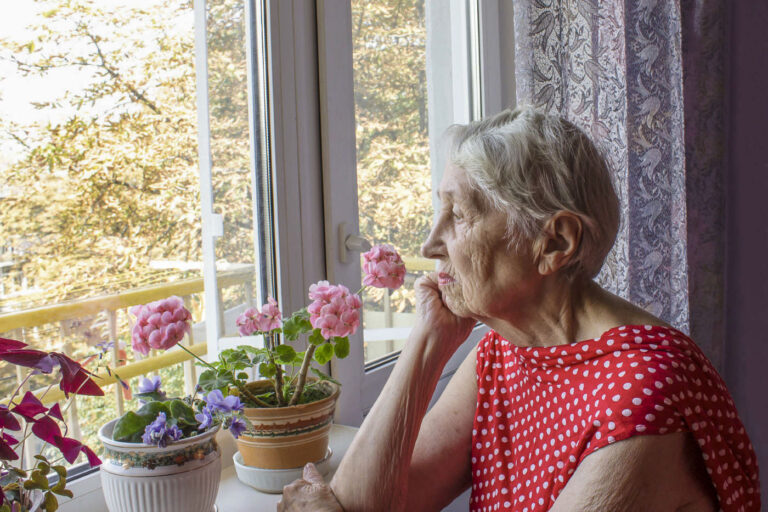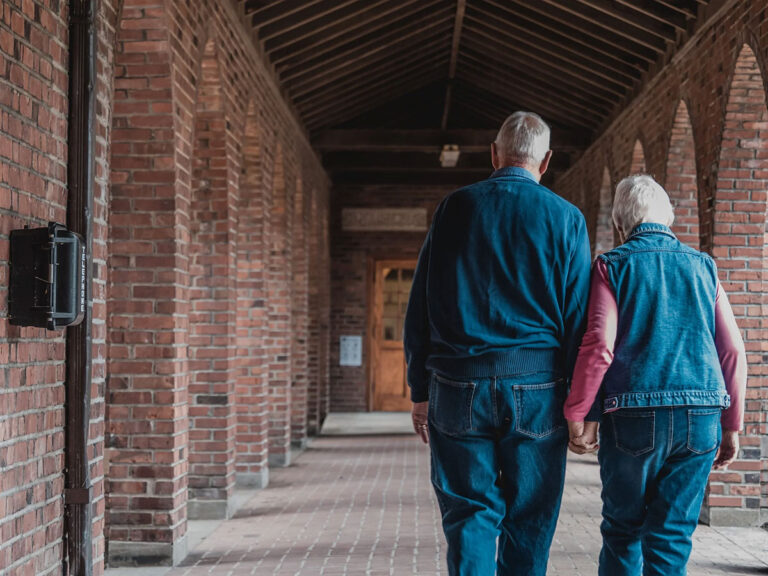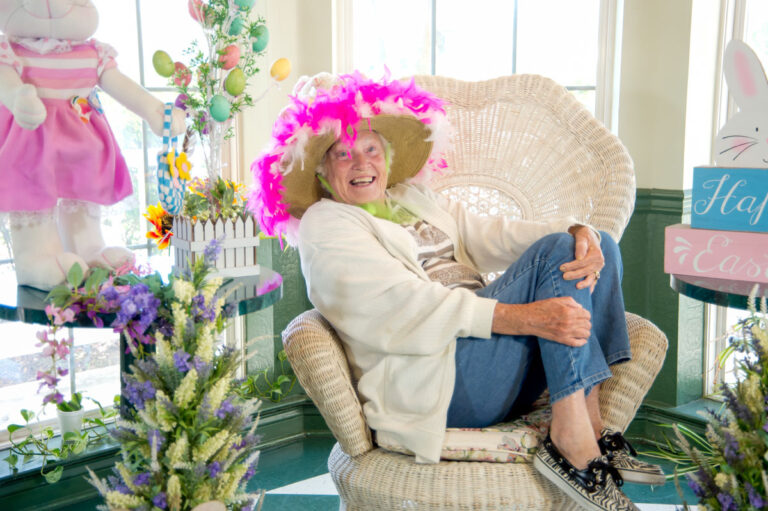Learn how St. Francis Villa works to help our residents – and their community – live thriving, vibrant lives of purpose and passion in their later years.
Imagine your elderly mother, once vibrant and active, now spending most of her days alone in her room, disengaged from the world around her. Or your father, who used to love socializing, now struggling with feelings of isolation and despair after losing his spouse.
These stories – shocking to hear and worse to experience – are all too common among senior adults. Older adults, particularly those who are limited in their mobility or living in a care facility, are at a higher risk for loneliness and depression.
At St. Francis Villa, we understand the profound impact that loneliness and depression can have on the well-being of seniors. Our assisted living community is dedicated to providing a holistic approach to care that prioritizes both sides of the person – physical health and emotional and social wellness.
We believe that by fostering a supportive, engaging environment and implementing targeted strategies, we can help alleviate the burden of loneliness and depression, allowing our residents to thrive in their golden years.
The Rise of Senior Loneliness and Depression
The statistics don’t lie – research has consistently shown that loneliness and depression are significant health concerns for older adults.
Feelings of loneliness can increase the risk of cognitive decline, heart disease, and even mortality. Research done by UCSF found that lonely seniors had a 59% higher risk of functional decline compared to their socially connected peers.
Shockingly, many of those who reported feelings of depression or loneliness didn’t actually live alone. They simply felt the feelings associated with loneliness, which can be just as damaging. Left untreated, these feelings can lead to a decline in physical and mental health, as well as a decrease in overall quality of life.
With the senior population expected to double by 2050, it is more important than ever to address the issue of senior loneliness and depression. But what exactly is causing this rise in loneliness among our older adults?
Factors Contributing to Loneliness and Depression in Seniors
While there are many factors to consider in the rise of depression rates in older adults, one in particular sticks out – the loss of a spouse or life partner.
The grief and adjustment to living alone can be overwhelming, leading to feelings of isolation and despair. Studies show that widowhood increases the likelihood of loneliness by up to 40%.
Reduced mobility is another factor that can exacerbate feelings of loneliness and depression. As seniors experience age-related physical limitations or chronic health conditions, they may find it more challenging to leave their homes and engage in social activities. This can lead to a vicious cycle of isolation and further decline in physical and mental health.
Living alone is also a significant risk factor for loneliness and depression in older adults. According to PBR, 27% of women between 65 and 74 lived alone in 2023. While living alone does not necessarily equate to loneliness, it can increase the risk, particularly if seniors lack a strong support network or opportunities for social interaction.
The Impact of Age-Related Changes
Age-related changes such as hearing loss or vision impairment can make it more challenging for seniors to engage with others, further exacerbating feelings of loneliness. These age-related issues can range in severity, including:
- Difficulty hearing conversations in noisy environments
- Challenges with reading small print or using technology
- Decreased mobility and difficulty getting out of the house
- Changes in physical appearance that may lead to self-consciousness or feelings of inadequacy
- Cognitive decline, leading to memory loss and difficulty with communication and social interaction.
As we age, our social circles often shrink due to changes such as retirement, relocation, and loss of loved ones. This can leave seniors feeling isolated and disconnected from their communities – particularly if they are unable to participate in activities they once enjoyed due to physical limitations. Compound that reality with many seniors facing financial difficulties or health issues that prevent them from engaging in social events and outings.

Tips for Helping Senior Adults Cope with Loneliness and Depression
At St. Francis Villa Assisted Living, we are dedicated to creating an environment where our residents can thrive and maintain social connections. Here are some tips for helping senior adults cope with loneliness and depression:
- Encourage involvement in activities: Whether it’s participating in group exercise classes, joining a book club, or attending religious services, encourage seniors to engage in activities that interest them. This helps combat feelings of loneliness and promotes a sense of purpose and belonging.
- Foster meaningful relationships: Encourage your loved one to reach out to family members, friends, and other seniors with similar interests. These connections can provide much-needed support and companionship.
- Utilize technology: Many elderly individuals may feel intimidated by technology, but it can be a great tool for staying connected with loved ones who live far away. Help your loved one set up a video call or chat on platforms like Skype or Facetime.
- Encourage physical activity: Regular exercise is important for both physical and mental health. Encourage seniors to engage in activities such as walking, swimming, or yoga to help them stay active and maintain their independence.
- Promote healthy eating habits: A well-balanced diet can do wonders for maintaining overall health and well-being. Encourage your loved one to eat a variety of fruits, vegetables, whole grains, lean proteins, and healthy fats.
- Provide resources for mental stimulation: Engaging in mentally stimulating activities can help keep the mind sharp and prevent cognitive decline. This could include puzzles, word games, reading books, or learning a new skill or hobby.
- Connect with loved ones: Social interaction is crucial for seniors to maintain a sense of belonging and purpose. Encourage them to stay in touch with family and friends, whether it’s through video calls on platforms like Skype or Facetime, or by participating in community events and clubs.
- Monitor medication intake: Make sure your loved one is taking their medications as prescribed and keep track of any potential side effects or interactions.
- Promote regular check-ups: Regular visits to the doctor can help catch any health issues early on and prevent them from becoming more serious. Encourage your loved one to schedule routine check-ups and screenings.
- Seek support when needed: Taking care of an aging loved one can be overwhelming at times. Don’t be afraid to seek help from family, friends, or professional caregivers when needed. Remember that self-care is important for both you and your loved one.
Together We Can Fight Back
Loneliness and depression are significant challenges faced by many senior adults, but they are not inevitable. As family members, friends, and caregivers, we have the power to make a profound difference in the lives of the older adults we know.
Whether it’s through regular visits, phone calls, or simply lending a listening ear, investing time and attention in our senior loved ones can go a long way in alleviating feelings of loneliness and depression.
We encourage you to reach out to the seniors in your life and show them that they are valued, loved, and supported. If you have a senior family member who could benefit from the engaging, supportive environment offered by an assisted living community, we invite you to consider St. Francis Villa.
We are dedicated to providing a holistic approach to senior care that prioritizes emotional well-being and fosters a sense of community. Our experienced staff, diverse activities, and personalized care plans are designed to help residents combat loneliness and depression and maintain a high quality of life.
We invite you to visit our website or call us at (504) 738-1060 to learn more about our assisted living community and how we can support your loved one’s emotional, physical, and social needs. Schedule a tour today and see for yourself the difference a supportive, engaging environment can make in the life of a senior adult.


